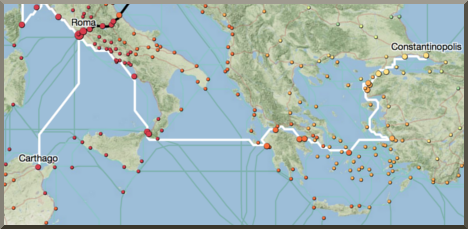
With no over-arching theme, here are some links to articles I’ve seen this week that I think are interesting:
Looking for a reality show worth caring about? A Dutch entrepreneur is going to use a reality show to populate a human colony on Mars. The idea put me in mind of The Man Who Sold the Moon.
Are economists little more than tools for tyrants? (h/t @jamesdeantx – James Pruitt)
Is IQ a valid measure of anything? Kindasorta — if nothing changes. But when rigorous education penetrates into formerly underserved populations, the Flynn Effect kicks in: IQs go up. So: Will online education bring on a “super” Flynn Effect? I think this is a wonderful possibility, potentially a massive increase in intellectual capital — the only true capital in all of human wealth. If you paid a ton of money for a bullshit academic education, you might not be quite as happy as I am.
Finally, when you are stuck waiting your turn at some government office, take a moment to consider the logistical nightmares of the Roman Empire. Standford has created a geospatial network model of the Roman world:
Spanning one-ninth of the earth’s circumference across three continents, the Roman Empire ruled a quarter of humanity through complex networks of political power, military domination and economic exchange. These extensive connections were sustained by premodern transportation and communication technologies that relied on energy generated by human and animal bodies, winds, and currents.
Conventional maps that represent this world as it appears from space signally fail to capture the severe environmental constraints that governed the flows of people, goods and information. Cost, rather than distance, is the principal determinant of connectivity.
For the first time, ORBIS allows us to express Roman communication costs in terms of both time and expense. By simulating movement along the principal routes of the Roman road network, the main navigable rivers, and hundreds of sea routes in the Mediterranean, Black Sea and coastal Atlantic, this interactive model reconstructs the duration and financial cost of travel in antiquity.
Taking account of seasonal variation and accommodating a wide range of modes and means of transport, ORBIS reveals the true shape of the Roman world and provides a unique resource for our understanding of premodern history.
This might just be the most fun you can have on the internet…















